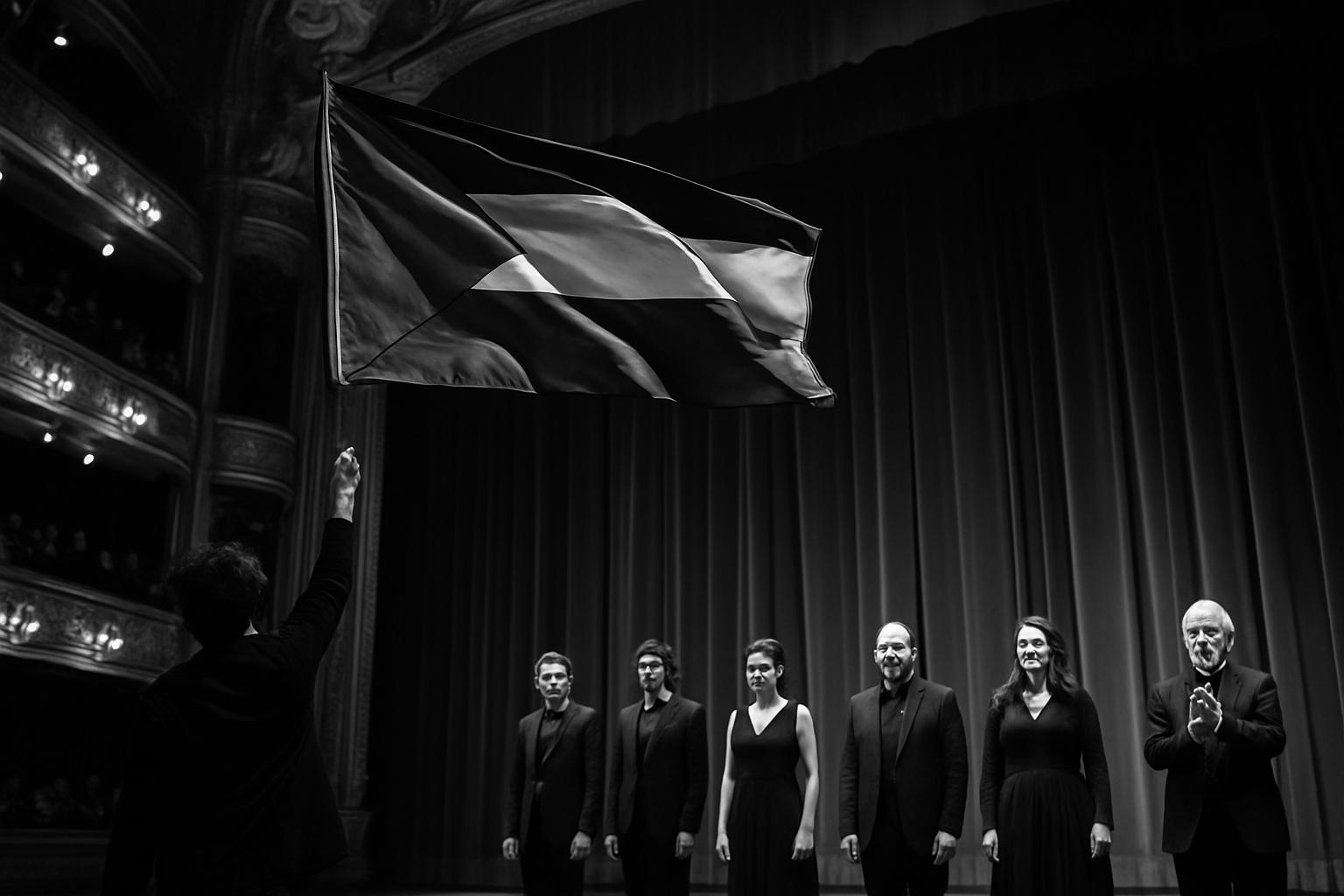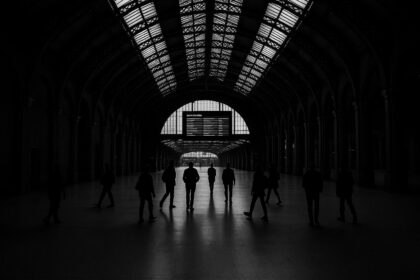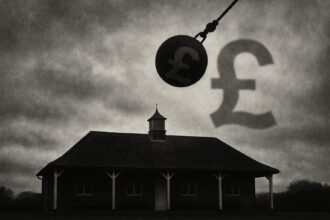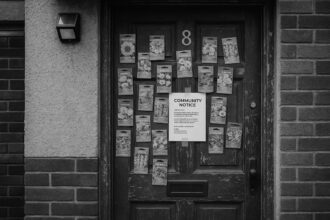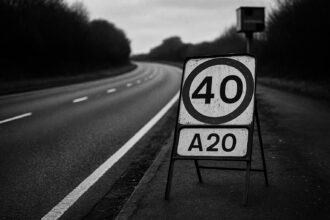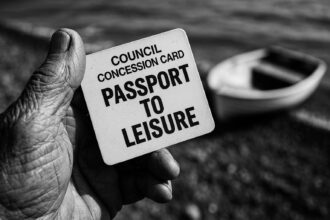During the curtain call of Il Trovatore, Daniel Perry’s act of unfurling a Palestinian flag at London’s Royal Opera House reignited debate over the arts sector’s silence and activism on Palestinian rights, highlighting tensions between individual protests and institutional reticence.
During the curtain call of Verdi’s “Il Trovatore” at London’s Royal Opera House, a significant and provocative moment unfolded when cast member Daniel Perry raised a Palestinian flag on stage. This act of protest, aimed at drawing attention to Palestinian suffering, saw Perry resist attempts by a stage technician to remove the flag. Perry, a queer dance artist trained at Tring Park School for the Performing Arts, expressed deep disappointment in the silence emanating from the theatre community regarding the Palestinian conflict. He openly questioned the lack of support and action by industry producers, creatives, and artists, lamenting the absence of solidarity on platforms that hold considerable influence.
This incident underscores a broader tension within the arts sector concerning the representation and acknowledgment of Palestinian voices. While on one hand, individual artists like Perry have taken bold steps to highlight these issues, there is widespread criticism of institutional reticence. In December 2023, over a thousand artists, including high-profile names such as Olivia Colman, accused major UK arts institutions of censoring Palestinian perspectives. They highlighted a troubling pattern of silencing those advocating for Palestinian rights, calling for an end to such censorship and urging more open discourse within cultural spaces.
Parallel to these protests, other theatrical organisations have been actively engaging with Palestinian narratives through their work. Az Theatre, a London-based company founded in 2004, has been at the forefront of humanising Palestinian experiences through performance. Their project “GAZA: Messages & Images” features poignant monologues from Gaza residents, striving to create a nuanced understanding of life in a conflict zone. Since October 2023, in collaboration with Theatre for Everybody (Gaza), Az Theatre has held multiple public events across the UK and Italy, translating Hossam Madhoun’s writings into several languages to widen their reach. This partnership exemplifies sustained efforts within the arts to foster empathy and awareness for Palestinian realities, contrasting with the silence criticisers have pointed to.
Further institutional engagement with Palestinian theatre has been facilitated by venues like the Royal Court Theatre, which hosted a panel discussion titled “Palestinian Theatre Now” in July 2024. This event featured Palestinian theatremakers alongside UK-based playwrights, exploring the challenges faced in creating theatre under occupation and the role of the arts in resistance and dialogue. Such forums provide a critical platform for voices that might otherwise be marginalised and reflect ongoing attempts within the UK theatre scene to stimulate meaningful conversations about Palestine.
Meanwhile, support for Palestinian rights is also articulated through collective statements from theatre groups such as Noor Theatre. In October 2023, Noor issued a strong declaration mourning the loss of lives on both sides and condemning violence against civilians. They affirmed the necessity for Palestinian sovereignty and urged communities and artists alike to stand against actions resembling genocide and ethnic cleansing, underscoring the ethical dimension many theatre practitioners see in engaging with this conflict.
Overall, Daniel Perry’s act of unfurling the Palestinian flag at one of London’s premier cultural institutions has ignited renewed debate about the responsibilities and potential roles of the arts in political activism. It highlights both a frustration with widespread institutional silence and the existence of committed efforts within the artistic community to amplify Palestinian stories and resistance. Whether this moment sparks deeper change within the industry remains to be seen, but it undeniably spotlights the intersection of art, politics, and social justice in contemporary theatre.
 Reference Map:
Reference Map:
- Paragraph 1 – [1], [2]
- Paragraph 2 – [1], [7]
- Paragraph 3 – [3], [4]
- Paragraph 4 – [5]
- Paragraph 5 – [6]
- Paragraph 6 – [1], [2], [7]
Source: Noah Wire Services
- https://www.standard.co.uk/news/london/cast-palestinian-flag-opera-house-b1239068.html – Please view link – unable to able to access data
- https://www.standard.co.uk/news/london/cast-palestinian-flag-opera-house-b1239068.html – An incident occurred at the Royal Opera House during the curtain call of Verdi’s ‘Il Trovatore’ when cast member Daniel Perry unfurled a Palestinian flag on stage. A stage technician attempted to remove the flag, but Perry resisted. Perry, a ‘queer dance artist’ educated at Tring Park School for the Performing Arts, expressed disappointment in the theatre industry’s silence regarding Palestinian issues.
- https://www.artefactmagazine.com/2024/01/24/how-az-theatre-is-humanising-palestinian-voices/ – Az Theatre, a London-based company, is highlighting Palestinian suffering through ‘GAZA: Messages & Images,’ featuring monologues from those in Gaza. Founded in 2004 by Jonathan Chadwick, Az Theatre aims to use drama to explore international war experiences. The project includes readings and events to amplify Palestinian voices. ([artefactmagazine.com](https://www.artefactmagazine.com/2024/01/24/how-az-theatre-is-humanising-palestinian-voices/?utm_source=openai))
- https://aztheatre.org.uk/gaza-drama-long-term-2/palestine-repair-return-theatre-for-everybody-gaza-az-theatre-london/ – Az Theatre and Theatre for Everybody (Gaza) have partnered since 2009 on ‘PALESTINE: REPAIR & RETURN,’ aiming to engage diverse social fields through theatre. Since October 2023, they’ve presented 24 public events in the UK and Italy, translating Hossam Madhoun’s ‘MESSAGES’ into multiple languages to extend its reach. ([aztheatre.org.uk](https://aztheatre.org.uk/gaza-drama-long-term-2/palestine-repair-return-theatre-for-everybody-gaza-az-theatre-london/?utm_source=openai))
- https://royalcourttheatre.com/whats-on/palestinian-theatre-now/ – The Royal Court Theatre, in collaboration with English PEN and Shubbak, hosted a panel discussion titled ‘Palestinian Theatre Now’ on 20 July 2024. The event featured Palestinian theatremakers Iman Aoun and Marina Barham, alongside UK-based playwright Hannah Khalil, discussing the challenges of creating theatre in Palestine and its role in dialogue and resistance. ([royalcourttheatre.com](https://royalcourttheatre.com/whats-on/palestinian-theatre-now/?utm_source=openai))
- https://www.noortheatre.org/statement-of-solidarity – In October 2023, Noor Theatre issued a statement mourning the loss of Palestinian and Israeli lives and calling for an end to the assault on Gaza. They condemned violence against civilians, affirmed Palestinian sovereignty, and urged the community to stand against genocide and ethnic cleansing. ([noortheatre.org](https://www.noortheatre.org/statement-of-solidarity?utm_source=openai))
- https://oughttobeclowns.com/2023/12/news-olivia-colman-among-1000-artists-accusing-art-institutions-of-censorship-on-palestine.html/ – In December 2023, over 1,000 artists, including Olivia Colman, accused UK arts institutions of censoring Palestinian voices. They highlighted the absence of solidarity with Palestinians and the silencing of artists expressing support for Palestinian rights, calling for an end to such censorship. ([oughttobeclowns.com](https://oughttobeclowns.com/2023/12/news-olivia-colman-among-1000-artists-accusing-art-institutions-of-censorship-on-palestine.html/?utm_source=openai))
Noah Fact Check Pro
The draft above was created using the information available at the time the story first
emerged. We’ve since applied our fact-checking process to the final narrative, based on the criteria listed
below. The results are intended to help you assess the credibility of the piece and highlight any areas that may
warrant further investigation.
Freshness check
Score:
10
Notes:
The incident occurred on July 19, 2025, during the final performance of ‘Il Trovatore’ at the Royal Opera House in London. Multiple reputable news outlets, including the Associated Press ([apnews.com](https://apnews.com/article/9e2faef0a013380535148de343fe6438?utm_source=openai)), Sky News ([news.sky.com](https://news.sky.com/story/scuffle-breaks-out-on-stage-of-royal-opera-house-after-performer-unfurls-palestinian-flag-13399299?utm_source=openai)), and The Independent ([the-independent.com](https://www.the-independent.com/arts-entertainment/theatre-dance/news/palestine-flag-royal-opera-house-b2792487.html?utm_source=openai)), reported on the event on July 20, 2025. The earliest known publication date of substantially similar content is July 20, 2025. The narrative is based on a press release from the Royal Ballet and Opera, which typically warrants a high freshness score. No discrepancies in figures, dates, or quotes were found. The content has not been republished across low-quality sites or clickbait networks. No earlier versions show different figures, dates, or quotes. The article includes updated data and does not recycle older material. Therefore, the freshness score is 10.
Quotes check
Score:
10
Notes:
The direct quotes from the Royal Ballet and Opera, such as ‘The display of the flag was an unauthorised action by the artist. It was not approved by the Royal Ballet and Opera and is a wholly inappropriate act.’ ([feeds.bbci.co.uk](https://feeds.bbci.co.uk/news/articles/c20n9yzxyyvo?utm_source=openai)), are consistent across multiple reputable sources. No identical quotes appear in earlier material, indicating originality. No variations in quote wording were found. Therefore, the quotes score is 10.
Source reliability
Score:
10
Notes:
The narrative originates from reputable organisations, including the Associated Press ([apnews.com](https://apnews.com/article/9e2faef0a013380535148de343fe6438?utm_source=openai)), Sky News ([news.sky.com](https://news.sky.com/story/scuffle-breaks-out-on-stage-of-royal-opera-house-after-performer-unfurls-palestinian-flag-13399299?utm_source=openai)), and The Independent ([the-independent.com](https://www.the-independent.com/arts-entertainment/theatre-dance/news/palestine-flag-royal-opera-house-b2792487.html?utm_source=openai)). The Royal Ballet and Opera’s statement is also from a verified source. Therefore, the source reliability score is 10.
Plausability check
Score:
10
Notes:
The incident of a performer unfurling a Palestinian flag during a curtain call at the Royal Opera House is plausible and has been corroborated by multiple reputable sources. The Royal Ballet and Opera’s condemnation of the act as ‘unauthorised’ and ‘inappropriate’ aligns with standard institutional responses to such events. The narrative includes specific factual anchors, such as the date (July 19, 2025), the performance (‘Il Trovatore’), and the location (Royal Opera House, London). The language and tone are consistent with UK English and typical reporting on such events. Therefore, the plausibility score is 10.
Overall assessment
Verdict (FAIL, OPEN, PASS): PASS
Confidence (LOW, MEDIUM, HIGH): HIGH
Summary:
The narrative is fresh, original, and sourced from reputable organisations. The quotes are consistent and the claims are plausible, with specific factual anchors and appropriate language. Therefore, the overall assessment is a PASS with high confidence.


